Charles E W Bean, Diaries, AWM38 3DRL 606/135/1 - 1915 - 1916 - Part 6
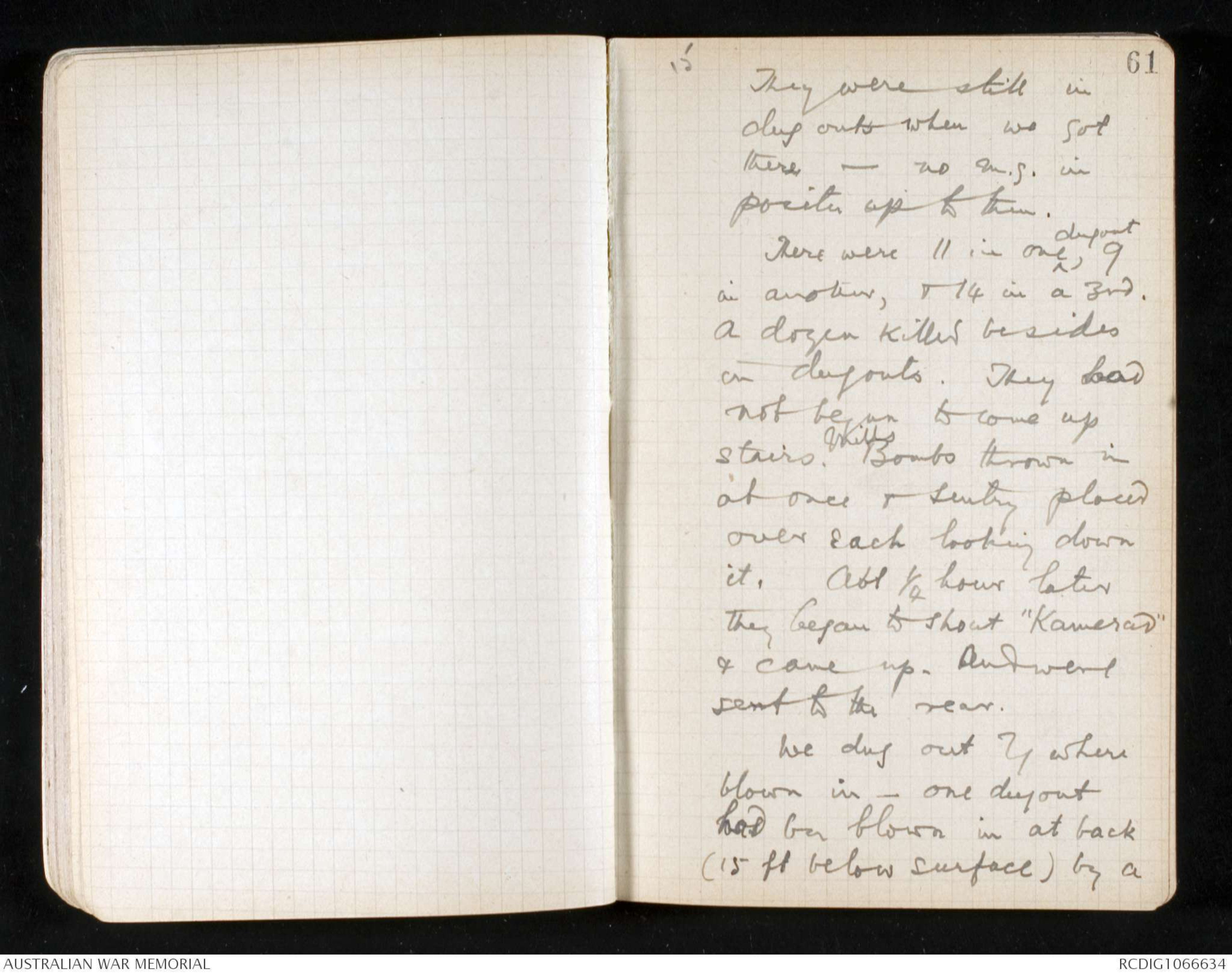

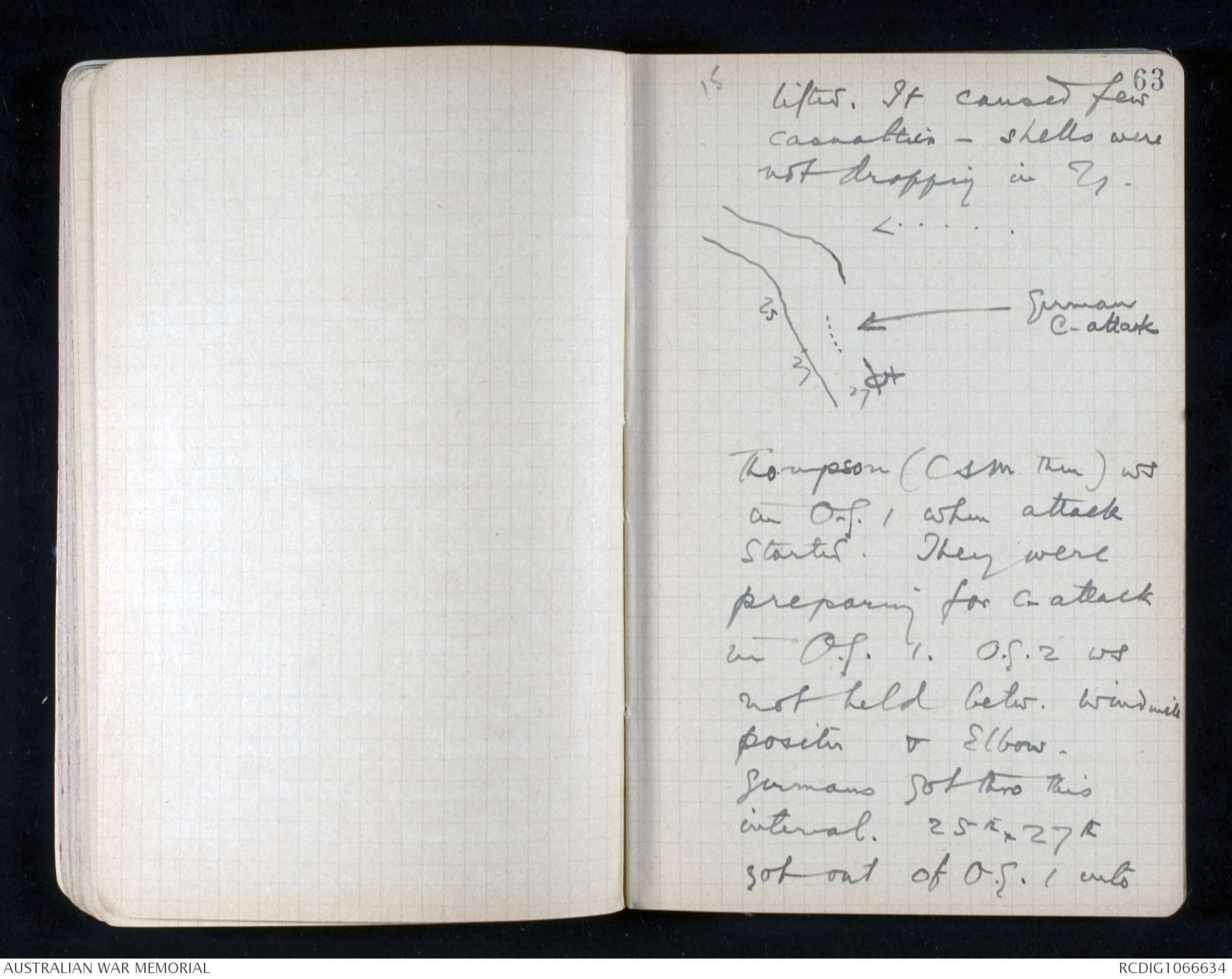
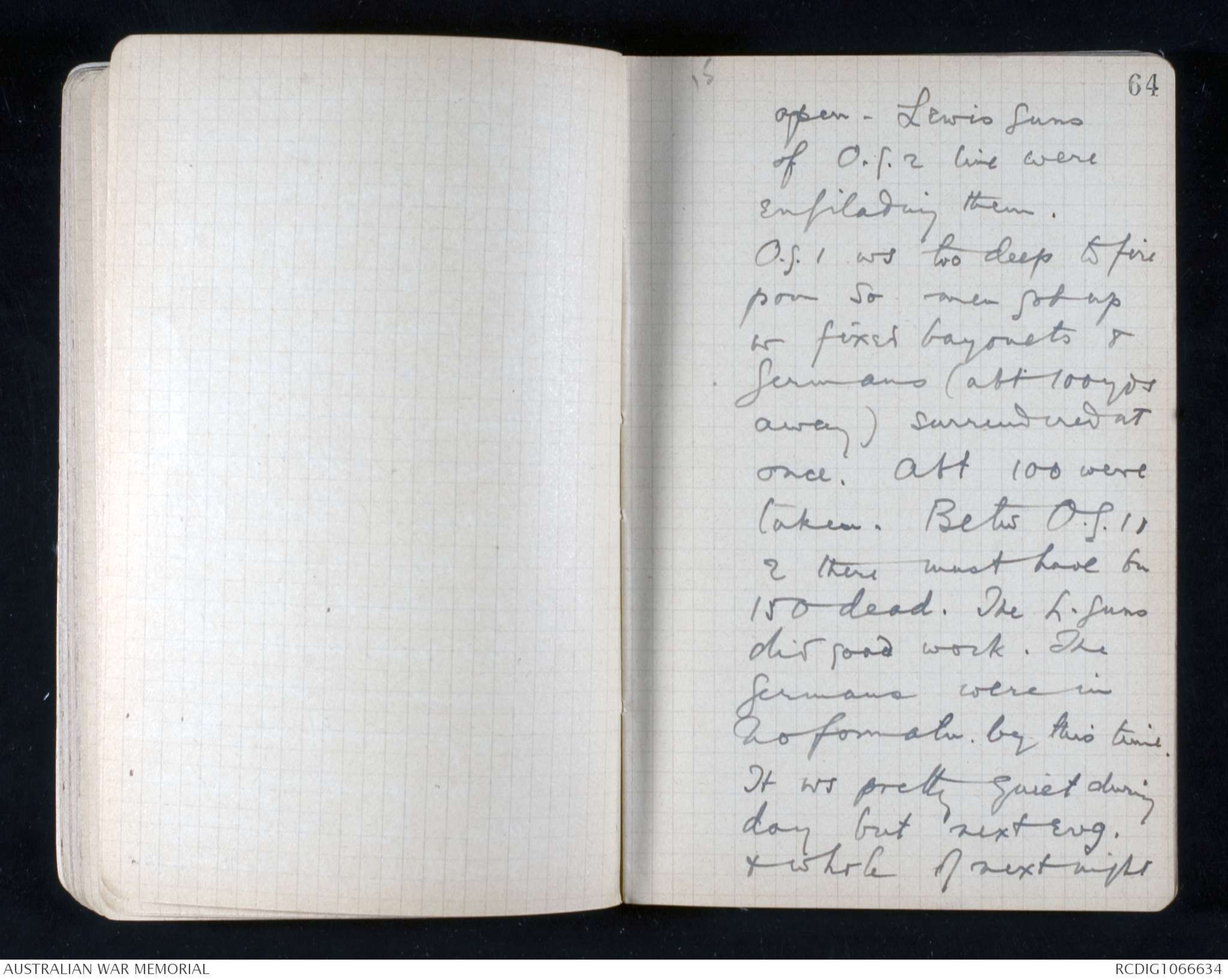


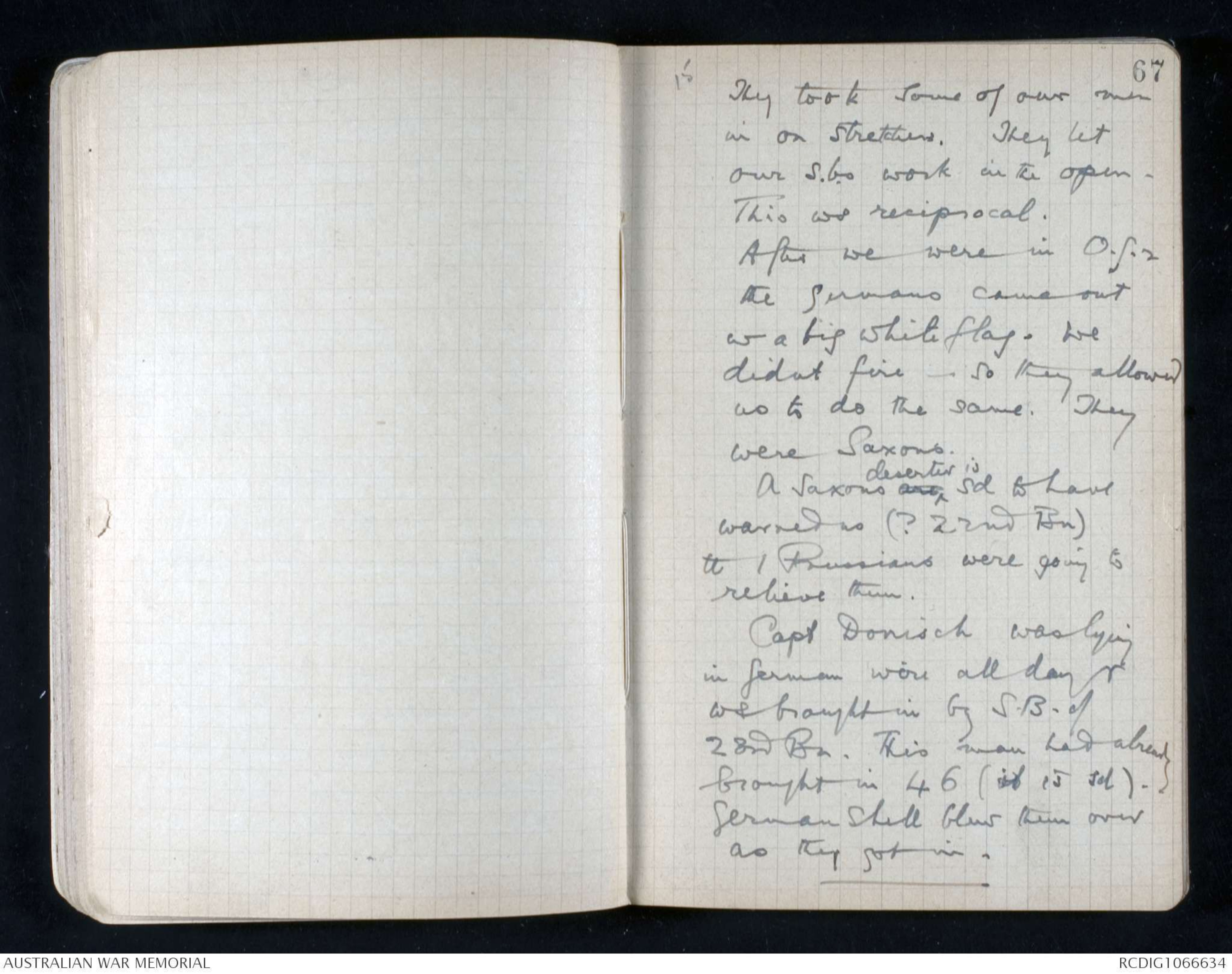
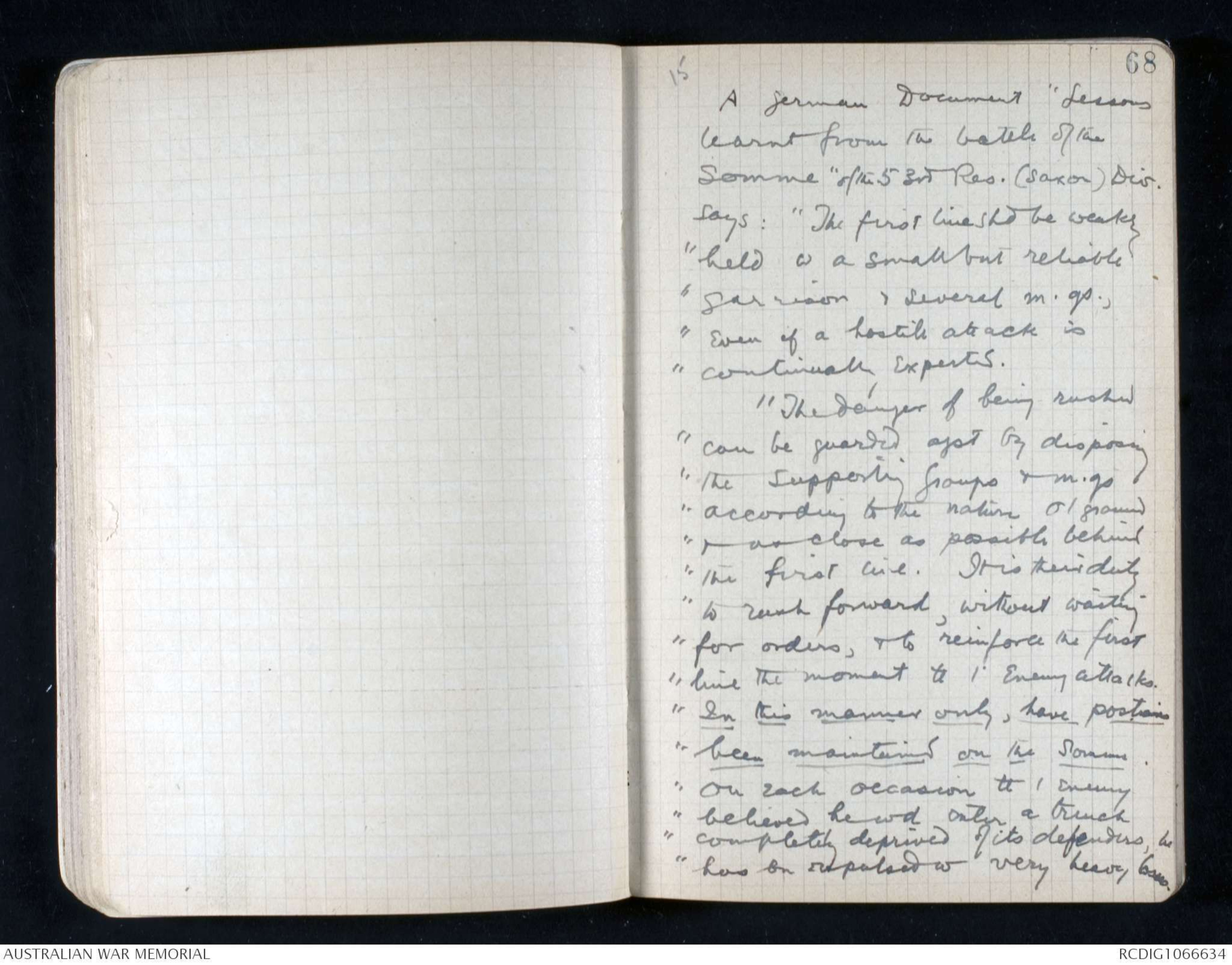
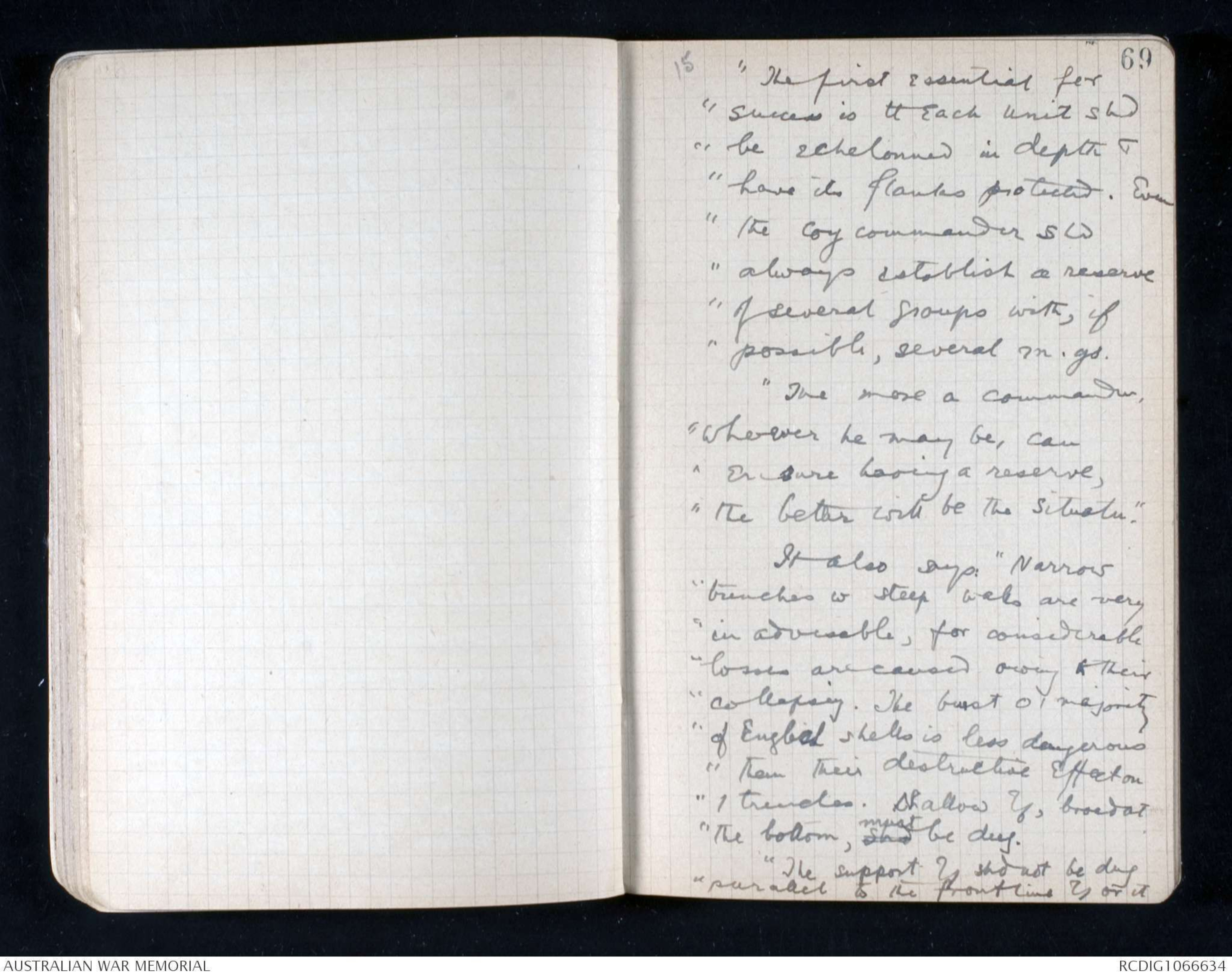
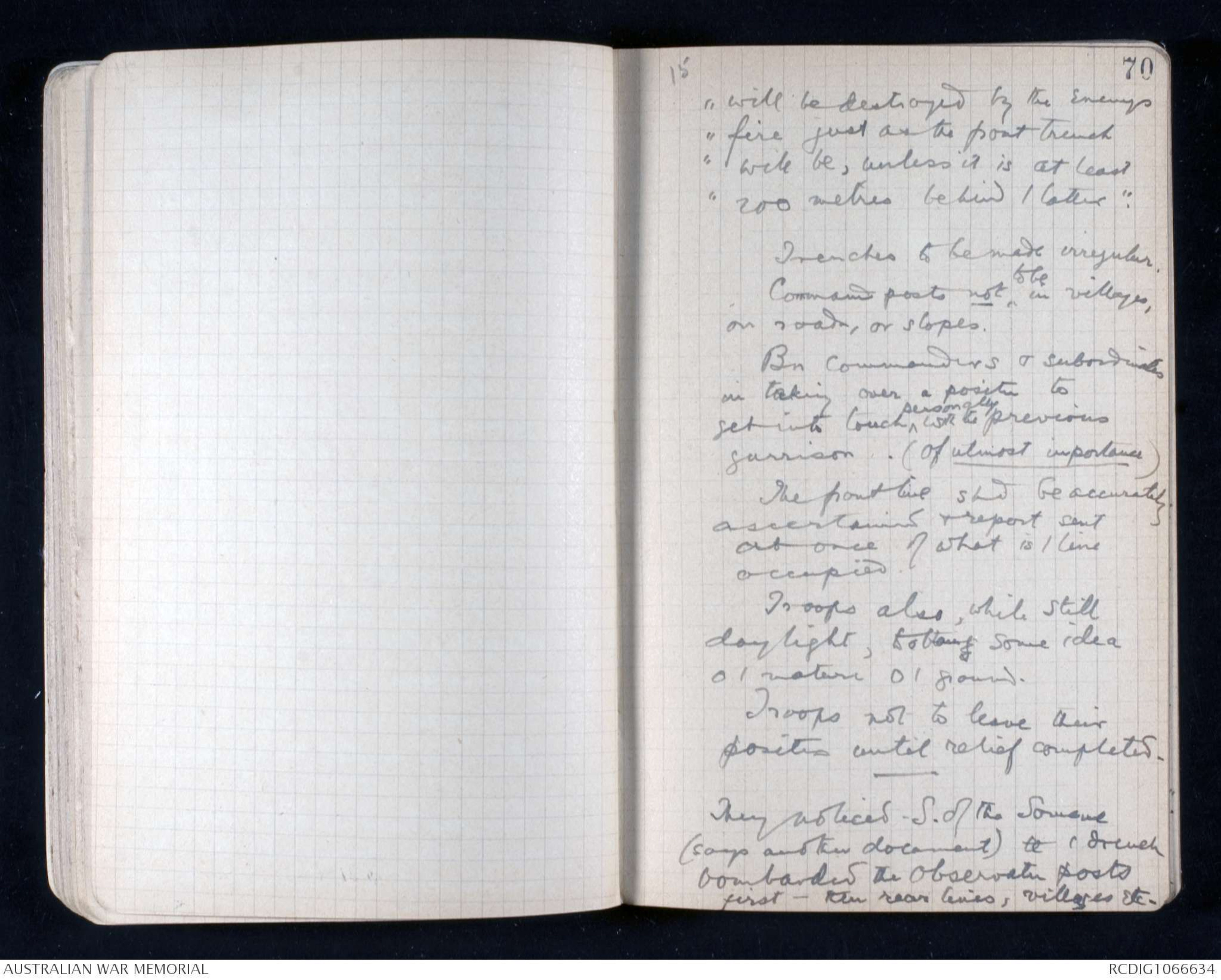
15
61
They were still in
dug outs when we got
there - no m.g. in
positn up to then.
There were 11 in one ^ dugout, 9
in another, & 14 in a 3rd.
A dozen killed besides
in dugouts. They had
not begun to come up
stairs. Mills Bombs thrown in
at once & sentry placed
over each looking down
it. Abt ¼ hour later
they began to shout "Kamerad"
& came up. And were
sent to the rear.
We dug out [shorthand - trench] where
blown in - one dugout
had bn blown in at back
(15 ft below surface) by a
15
62
very heavy shell.
(They were in front of [shorthand - trench])
Thompson ws just to
N of Elbow in trench.
Barrage went on to
O.G.2. Thom 1st & 2nd waves
were consolidating. 3rd &
4th waves were excellently
kept & they went over
& took O.G.2.Runners Patrol ws
sent out from O.G.1 wh
reported tt O.G.2 was
taken. Thompson ws
in O.G.1 all night.
Abt dawn Germans threw
over heavy bombt . From
O.G.2 during bombt Germans
cd be seen gathering
near Martinpuich Rd.
As they advanced barrage
15
63
lifted. It caused few
casualties - shells were
not dropping in [shorthand - trench].
[Hand drawn sketch - see original].
German c-attack
Thompson (CSM then) ws
in O.G.1 when attack
started. They were
preparing for c-attack
in O.G.1. O.G.2 ws
not held betw. Windmill
positn & Elbow.
Germans got thro this
interval. 25th & 27th
got out of O.G.1 into
15
64
open. Lewis Guns
of O.G.2 line were
enfilading them.
O.G.1 ws too deep to fire
from so men got up
w fixed bayonets &
Germans (abt 100 yds
away) surrendered at
once. Abt 100 were
taken. Betw O.G.1 &
2 there must have bn
150 dead. The L. Guns
did good work. The
Germans were in
no formatn. by this time.
It ws pretty quiet during
day but next evg.
& whole of next night
15
65
a v. heavy bombt ws
kept up till next
morning. The 25th
were relieved early
tt morning. (This
ws the morning when before
the c-attack in wh
Jacka ws hit).
German attempted to
C. attack (they blew the
whole of our commn
[shorthand - trenches] up & caused a lot
of casualties.)
The c. attack on this
2nd morning ws broken
by artillery fire after
the 25th had left. Some of
Bde m.gs. were there the
3rd morning in Jacka's attack.
15
66
Lt. Healy & Sergt Harrison
(now 2/Lt) & Cameron, s.b.s
& runners were very
conspicuous.
(In first show as Johnson
ws coming away L. gunner apologised
to him for being shot in both arms).
Pte Lawlor had left eye hit,
right jaw bone broken left
leg broken by shell - ws
out 28 hrs in O.G.1
(s.b.s so busy behind O.G.1 tt
cd nt reach the lines before)
& is now doing well.
After fight of 28/29
Germans were out amongst
shell holes. They A Doctor bandaged
Sergt Freestone - & left him.
Another German took his
ration & told him he wd
give him a bomb for breakfastHe came SBs brought him in next night.
15
67
They took some of our men
in on stretchers. They let
our s.b.s work in the open -
This ws reciprocal.
After we were in O.G.2
the Germans came out
w a big white flag. We
didnt fire - so they allowed
us to do the same. They
were Saxons.
A Saxons are ∧ deserter is sd to have
warned us (? 22nd Bn)
tt / Prussians were going to
relieve them.
Capt Donisch was lying
in German wire all day &
ws brought in by S.B. of
23rd Bn. This man had already
brought in 46 (it is sd) .
German shell blew them over
as they got in.
15
68
A German Document "Lessons
learnt from the battle of the
Somme" of the 53rd Res. (Saxon) Div.
says : "The first line shd be weakly
"held w a small but reliable
"garrison & several m.gs.,
"even if a hostile attack is
"continually expected.
"The danger of being rushed
"can be guarded agst by dispersing
"the supporting groups & m.gs
"according to the nature o / ground
"& as close as possible behind
"the first wire. It is their duty
"to rush forward, without waiting
"for orders, & to reinforce the first
"line the moment tt / enemy attacks.
"In this manner only, have positions
"been maintained on the Somme.
"On each occasion tt / enemy
"believed he wd enter a trench
"completely deprived of its defenders, he
"has bn repulsed w very heavy losses.
15
69
"The first essential for
"success is tt each unit shd
"be echelonned in depth &
"have its flanks protected. Even
"the Coy commander shd
"always establish a reserve
"of several groups with, if
"possible, several m.gs.
"The more a commander,
"wherever he may be, can
"ensure having a reserve,
"the better will be the situation."
It also says: "Narrow
"trenches w steep walls are very
"inadvisable, for considerable
"losses are caused owing to their
"collapsing. The burst o / majority
"of English shells is less dangerous
"than their destructive effect on
"/ trenches. Shallow [shorthand - trenches], broad at
"the bottom, shd must be dug.
"The support [shorthand - trench] shd not be dug
"parallel to the front line [shorthand - trench] or it
15
70
"will be destroyed by the enemys
"fire just as the front trench
"will be, unless it is at least
"200 metres behind / latter."
Trenches to be made irregular.
Command posts not ∧ to be in villages,
on roads, or slopes.
Bn Commanders & subordinates
in taking over a positn to
get into touch ∧ personally with the previous
garrison. (Of utmost importance)
The front line shd be accurately
ascertained & report sent
at once of what is / line
occupied.
Troops also, while still
daylight, to obtaing some idea
o / nature o / ground.
Troops not to leave their
positns until relief completed.
They noticed S. of the Somme
(says and then document) tt / French
bombarded the observatn posts
first - then rear lines, villages etc.
 Loretta Corbett
Loretta CorbettThis transcription item is now locked to you for editing. To release the lock either Save your changes or Cancel.
This lock will be automatically released after 60 minutes of inactivity.